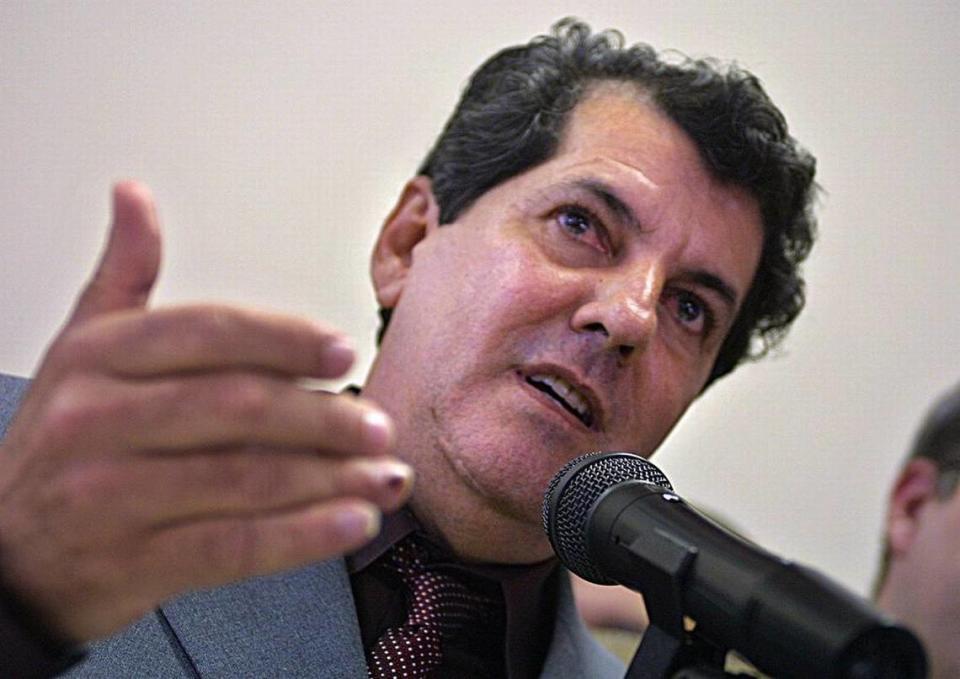U.S. senators stand up for dissident killed in Cuba. House lawmakers should do the same | Opinion
For opponents of the Cuban government, the death — we call it the murder — of respected activist Oswaldo Payá always seemed suspicious, not to mention convenient for those he opposed. He died in a horrific car accident on the island in 2012.
The Cuban government has long dealt harshly, even criminally, with those they consider traitors to Fidel Castro’s revolution. Unexplained disappearances and mysterious deaths have been the norm.
But who could prove a sinister government did it? That has often been the frustrating dilemma.
This week, in a 26-page report, the Inter-American Commission on Human Rights (IAHRC), the top-human rights group in the Western Hemisphere, did the impossible. It issued a verdict ultimately blaming the Cuban dictatorship for the death of Payá and a fellow activist in that accident.
“We have always suspected the hand of the Cuban government in my father’s death,” Payá’s daughter Rosa Maria Payá told reporters this week. She has continued her father’s work to end government repression in Cuba.
The Commission concluded that Cuban state security agents likely were involved in a car crash that killed Payá and Harold Cepero and that the Cuban government bears responsibility for his death, the Miami Herald reported.
The revelations again train a harsh spotlight on the Cuban government’s cruelty. And that’s where it should be.
We dare those Latin American leaders who, of late, defend and idolize Cuba’s government, to read the report and learn how this repressive regime silences its critics, then explain their continued and unbridled support for this regime.
‘Attempts on their lives’
The probe, which began in 2013 by the group that is part of the Organization of American States, says the July 2012 deaths of Payá and Cepero were politically motivated in a context marked by state violence against human-rights defenders in Cuba.
“Both were subjected to various acts of violence, harassment, threats, attempts on their lives, and finally, a vehicular crash that caused their death,” the Commission wrote, the Miami Herald reported.
At the time of his death, Payá, 60, was one of the most visible leaders of the Cuban opposition after he founded the Christian Liberation Movement and collected signatures to present a referendum petition to the National Assembly — as Cuba’s Constitution allowed. If approved, the petition would have let Cubans vote to oust the regime.
Socialism forever
Known as the Varela Project, the proposal was fiercely opposed by Fidel Castro, who amended the Constitution to make socialism “irrevocable” and, in 2003, ordered the arrest of 75 dissidents, many of them involved in promoting the Varela initiative.
Cuba has pointed the finger at others in the tragedy. Back in 2012, a Spanish political activist, Angel Carromero, was convicted in Cuba of Payá and Cepero’s deaths and sentenced to four years in prison.
Carromero, 26, who was visiting Cuba and driving Payá and others near the eastern city of Bayamo, lost control of his small rental car and ran into a tree. Carromero and Swedish activist, Jens Aron Modig, survived. Payá and Cepero died in the back seat.
Back in 2014, after his release, Carromero met with the Miami Herald and el Nuevo Herald opinion editors. He told us what occurred had not been a car accident, “but an attempted assassination” on Payá and everyone else in the vehicle. He insisted his rental car had been run off the road.
‘Run off the road’
Last year, David Hoffman, a Washington Post contributing editor and Pulitzer Prize winner, published the biography “Give Me Liberty: The True Story of Oswaldo Payá and his Daring Quest for a Free Cuba,” (Simon & Schuster) a deep dive into Payá’s life and work that should be Hollywood bound. Hoffman had heard accusations of the regime’s involvement, he told the Miami Herald Editorial Board.
“I report in ‘Give Me Liberty’ the text messages sent from the hospital on the day of the car wreck. . . . A passenger who survived texted that the driver, Carromero, said ‘Someone tried to run us off the road.’ Now the IAHRC has reached a similar conclusion.
“This cannot be the end of the story. Who was in the car that rammed Oswaldo’s on that July day? A full investigation is warranted.”
On Wednesday, in a remarkable display of bipartisan support, the U.S. Senate unanimously passed the Oswaldo Payá Way bill, legislation that renames the street outside of the Cuban embassy in Washington, D.C. “Oswaldo Payá Way.”
Love the poke in the eye.
The same measure now is in the U.S. House, and it should follow suit, unanimously.
The Commission’s finding has even sparked local bipartisanship.
Florida’s Democratic Party issued a statement on Wednesday praising the Commission’s finding — it’s an olive branch move by the party toward the Cuban-American community, whose vote they are courting for the 2024 presidential election.
“We welcome the conclusion of the investigation by the Inter-American Commission on Human Rights into the death of pro-democracy activist Oswaldo Payá and human rights defender Harold Cepero, which is further proof of the cruelty of a regime that persecutes those who stand against it,” said state Democratic Party chair Nikki Fried.
All proof that, even now, Payá continues to work against the Cuban government’s repression.


